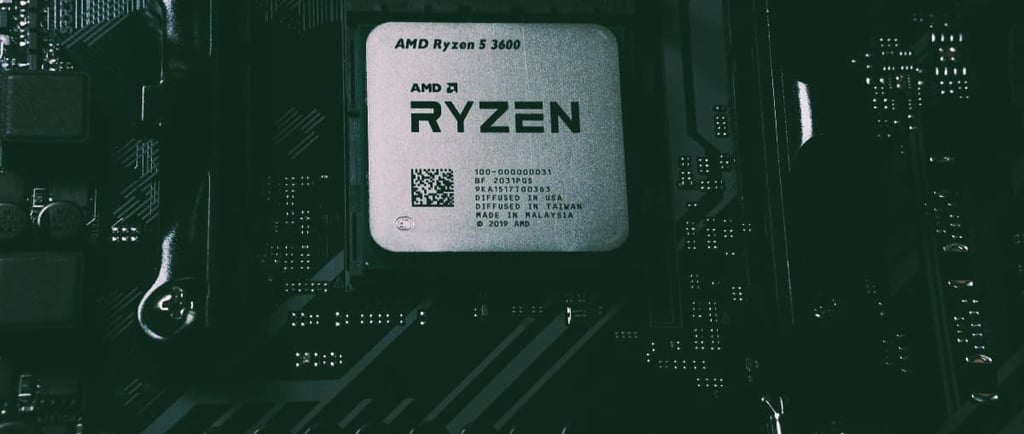Complete List of All AMD Ryzen processors + FAQ
This article provides a complete overview of AMD Ryzen CPU models, covering Ryzen Series 3, Series 5, Series 7, and Series 9. It includes technical specifications such as cores/threads, base and boost clock speeds, TDP, and launch dates for each processor.
NEWS


Complete List of All AMD Ryzen processors + FAQ
This article provides a complete overview of AMD Ryzen CPU models, covering Ryzen Series 3, Series 5, Series 7, and Series 9. It includes technical specifications such as cores/threads, base and boost clock speeds, TDP, and launch dates for each processor.
Both desktop and mobile Ryzen CPU models are included. However, for older processors with limited official AMD documentation, direct links may redirect to alternative sources like CPU Benchmark or TechPowerUp, ensuring access to detailed specifications.
We started with the frequently asked questions, and below, you can find the full list of all AMD Ryzen CPU models.
Frequently Asked Questions (FAQ) about the AMD Ryzen processors:
What is the difference between AMD Ryzen 3, 5, 7, and 9 series?
Each Ryzen series targets users based on core count, performance, and pricing.
How to understand which CPU model is Mobile and which one is Desktop?
AMD Ryzen CPUs use specific suffixes to indicate whether a processor is for desktops or laptops (mobile devices).
X (Desktop) - Higher clock speeds & TDP
XT (Desktop) - Slightly improved over X models
G (Desktop) - Integrated Radeon Graphics (APU)
GE (Desktop) - Power-efficient APU (lower TDP)
U (Mobile) - Ultra-low power for thin laptops
H (Mobile) - High-performance for gaming laptops
HS (Mobile) - Power-efficient H series (lower TDP)
HX (Mobile) - High-end mobile, overclockable
Desktop CPUs TDP is between 65W and 170W.
Mobile CPUs TDP is between 15W and 54W to ensure better power efficiency.
How do I know if my Ryzen CPU has integrated graphics?
Check for the "G" suffix in the model name. For example: Ryzen 5 5600G. These models have built-in Radeon Graphics.
What does the “X” mean in Ryzen CPUs?
The "X" means the CPU has a higher processor base frequency than non-X models.
What Ryzen CPU should you choose for a gaming PC?
We recommend Ryzen 7 or Ryzen 9 processors (especially X3D models: Ryzen 7 7800X3D or Ryzen 9 7950X3D) for gaming.
Can I overclock the Ryzen processors?
Yes, overclocking is available for all Ryzen CPU models. "X" and "HX" models are better optimized for it.
AMD Ryzen CPUs-Good for a Dedicated Server?
Ryzen CPUs , with their high core count, fantastic multi-threading performance, and power efficiency , are undoubtedly good for a dedicated server. They are available in both the Ryzen 9 and Ryzen 7 series lineups.
Which Ryzen CPU is best for a dedicated server?
For general hosting, Ryzen 7 or Ryzen 9 CPUs are ideal. Ryzen 9 7950X or Ryzen 9 9950X are great choices for gaming or high-performance workloads.
Can Ryzen CPUs be used for enterprise-level servers?
Ryzen CPUs can be used for small to mid-size enterprise workloads, but EPYC processors are recommended for large-scale enterprise applications.
What's the difference between Ryzen and AMD EPYC for servers?
Ryzen targets consumers and high-performance desktops, while EPYC targets data centers by packing more cores, up to 128, multi-socket support, and ECC RAM.
Can Ryzen CPUs handle 24/7 operation for dedicated servers?
Ryzen models can run 24/7 with proper cooling and power management to ensure long-term stability.
Do Ryzen CPUs support multiple NVMe drives for storage-heavy servers?
Yes, Ryzen supports multiple NVMe SSDs via PCIe lanes. Ryzen 7000 series supports PCIe 5.0 for ultra-fast storage performance.

